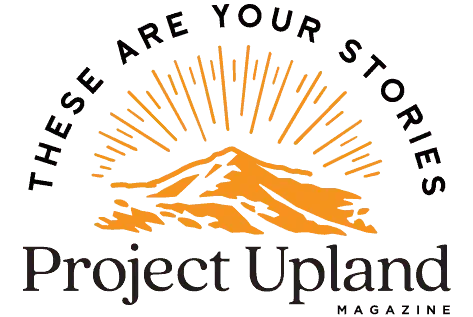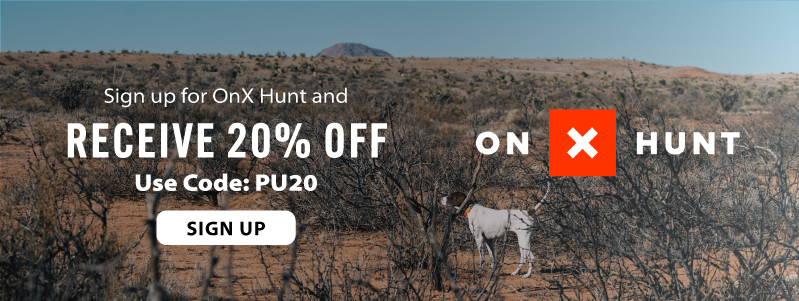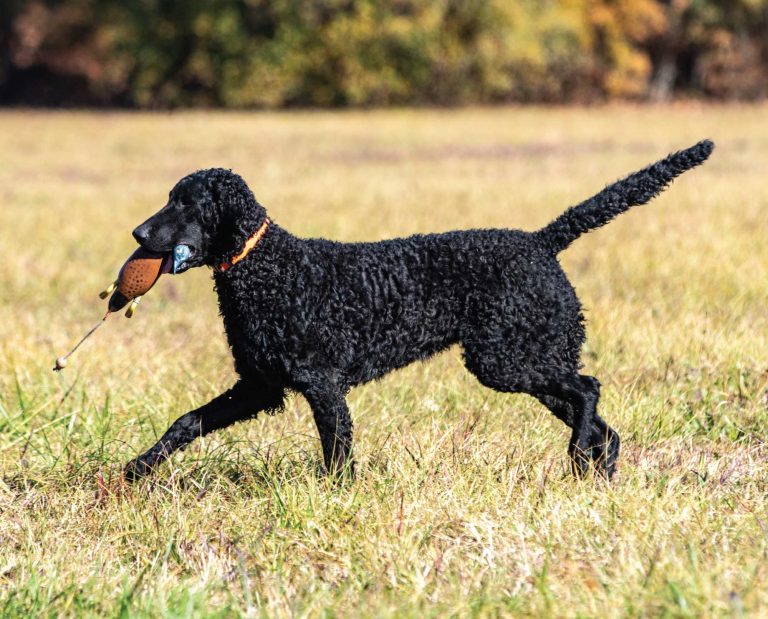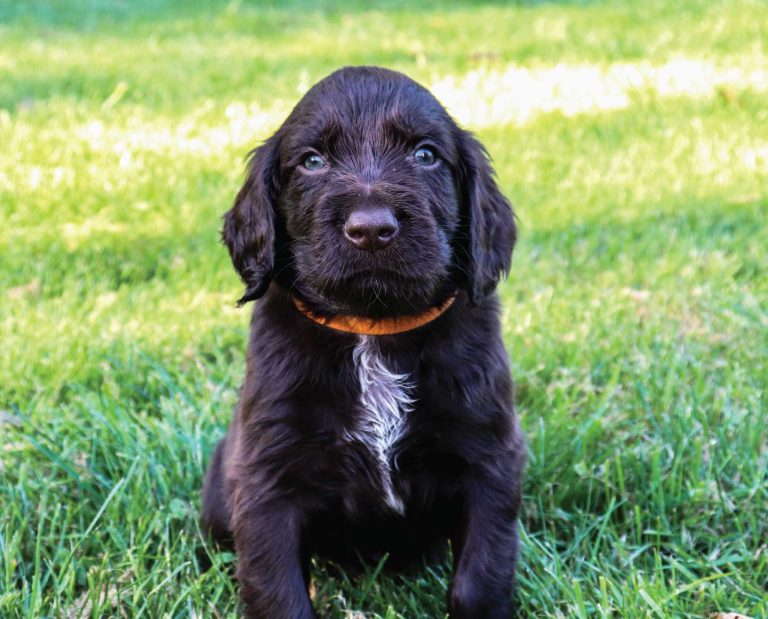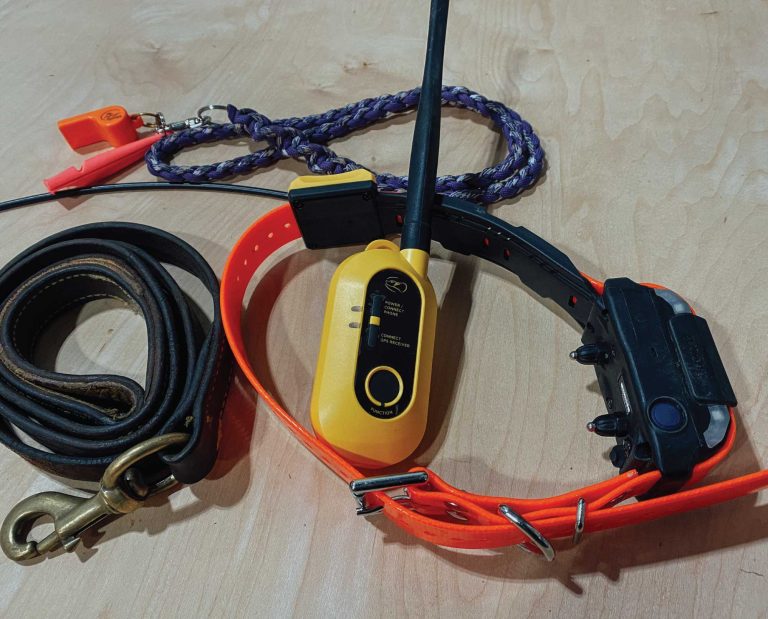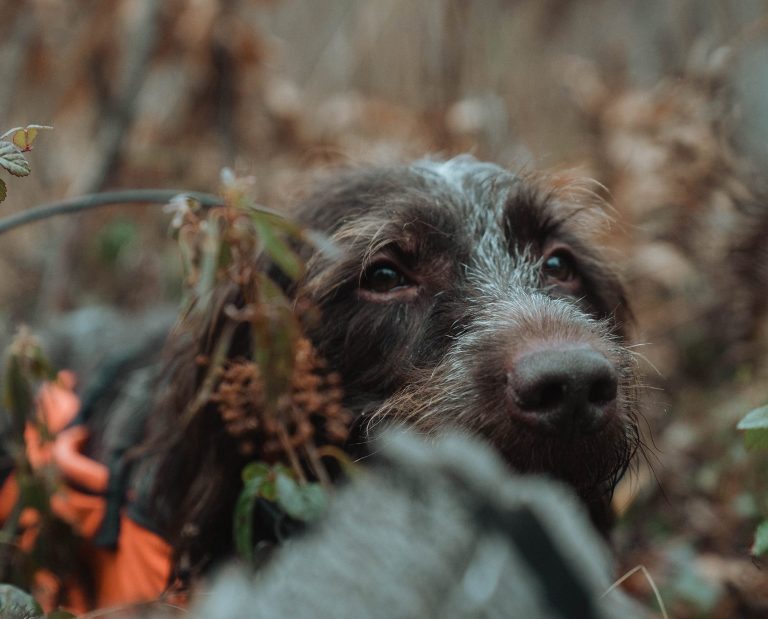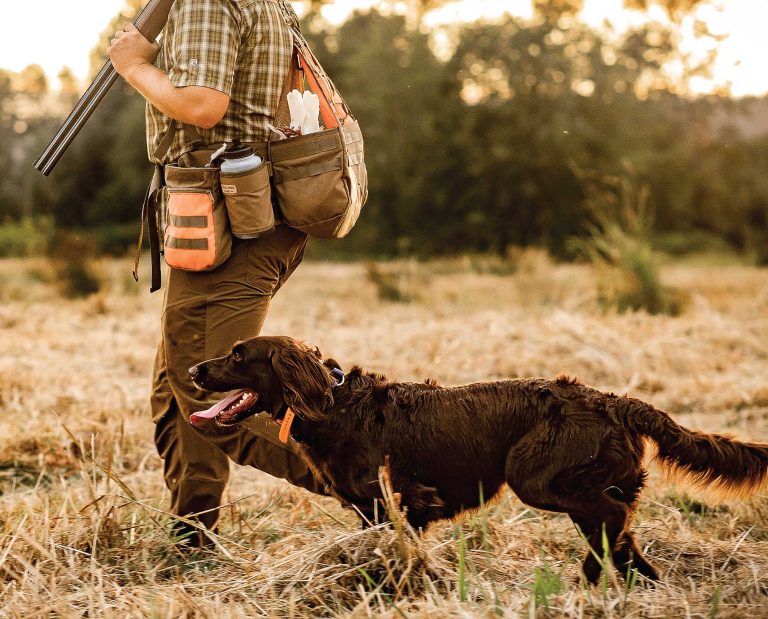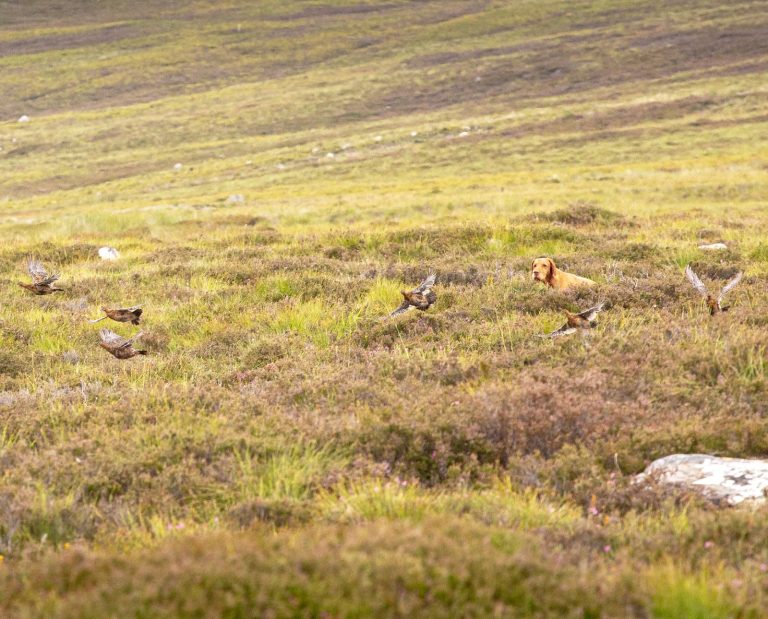Can Bird Dogs Help Save the Future of Hunting?
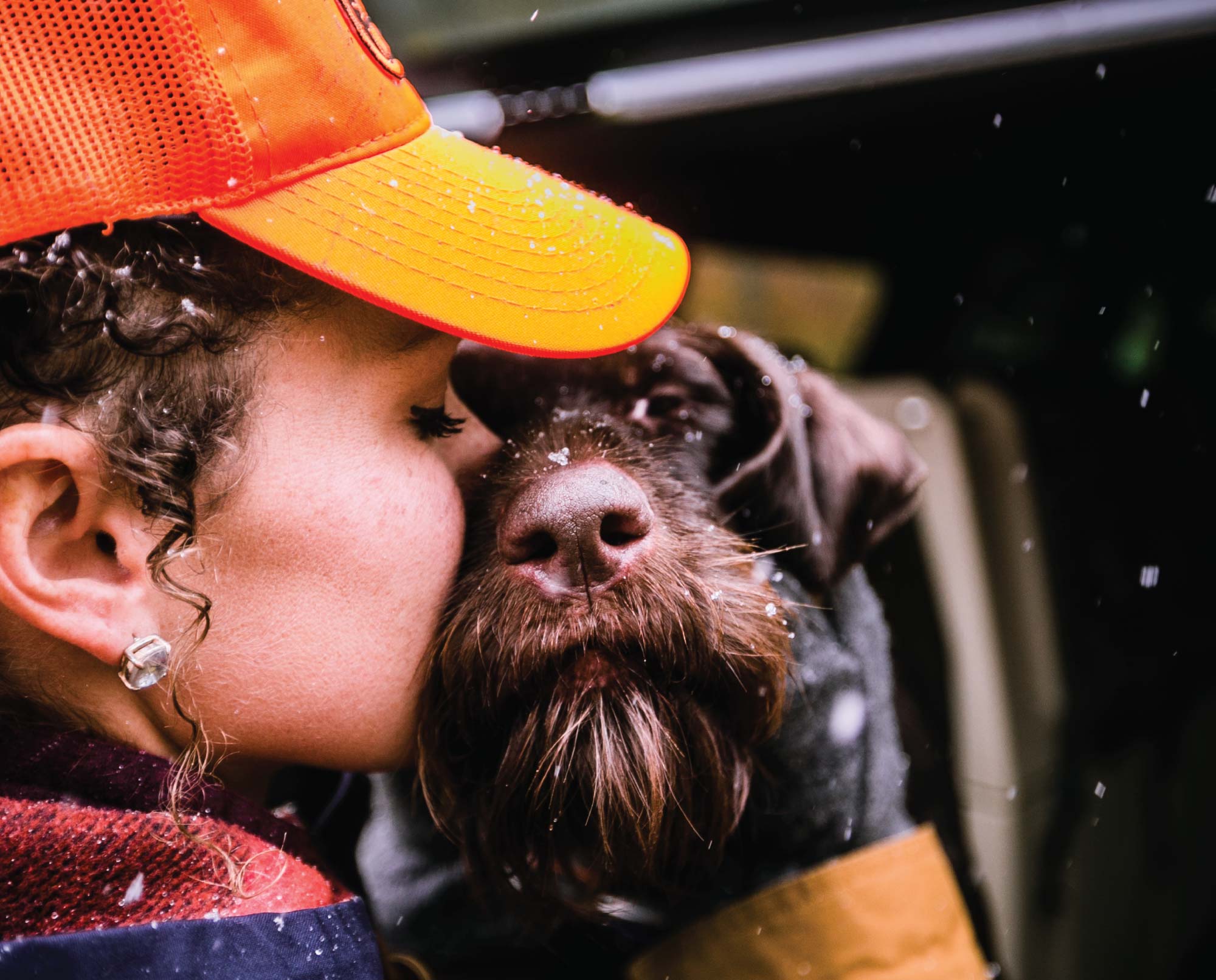
Confirming bird dogs as a silver bullet of R3 in the future of hunting recruitment
His eyes shifted slightly to his left, watching me as I started to pick up my pace and push through the thick brush. He was rigid, almost to the point of shaking. I looked back. Should I say “Whoa,” I thought to myself. No just keep going into the point, trust what was bred into him. A few more steps and what seemed like eternity passed. Suddenly, the whistle of American woodcock wings began to rise between us. His head rose as the bird began his climb for the top of the canopy that was still holding all its leaves despite the days of Fall. I shouldered my gun and a shot rang out as the bird disappeared into the abyss of leaves overhead.
Grim, my Wirehaired Pointing Griffon, did a 180 and disappeared into the thicket. Within seconds, I could see his tail wagging so hard it was shaking his whole body. In his mouth was our first woodcock of our second season. I was ecstatic for him. This was about him. The moment — when I was in it — was frozen, but once it passed I realized that it all went by all too quick.
Now you may think this story ends with me saying, “I took up hunting because of dogs.” I did not. I grew up in a hunting family. My grandfather was the first hunter in our family since they had immigrated from Italy. My father, in turn, grew up hunting. He loved it. He took my older brother and I throughout our youth. We did some bird hunting, but it was mostly about deer.
Years went by and I fell out of hunting. I remember not particularly caring for it when I was a kid. Well, the way they did it, to be more accurate. That is a theme for many millennials. There is a disconnect between the last guard and a new generation and changing culture. When I finally found hunting again, it was for different reasons than my father.
First, it was about food. Organic, sustainable, locavore, add all the new generation terms here. Then it evolved into the idea of escape and that’s when I found a love for ruffed grouse hunting. I would run away from my urban deer hunting life for the north country and wander endless overgrown logging trails waiting for that thrilling thunder of a flushing grouse. I started targeting woodcock after stumbling upon some in my grouse adventures. One thing after another, it fell into place.
The point of all of this (no pun intended) is that I experienced falling in love with hunting in a few different ways. What I did not know at the time, was that it would give me a unique perspective on how gun dogs can be the most intoxicating way to get lured into hunting. I spent a couple years on the road filming other dogs and one day I decided it was time to get my own.
Now, the journey of getting a first bird dog would take volumes to explain. So, in the simplest way I will say it’s a complex user experience that has layers of really personal journeys and emotions. If you have never owned a bird dog, think about what it feels like when a turkey gobbles back to your call. It is breath taking. It is a human interacting directly with nature. It’s powerful, even emotional. But now take man’s best friend and millennia since we domesticated dogs and built a foundational relationship. Fall in love with it. Train it. See it all together and you have a hunter for life. It becomes “All about the dogs.”
Now enough of storytelling. What are the hard facts? The data?
When the Project Upland audience was asked “Which would you describe as your TOP motivation for hunting?”, 39% of the audience said “for the dogs”. That’s an overwhelming number when second place motivation was tied at 15% for “being in nature” and “sport.” Now that word “sport” got me worked up for sure. I am someone strongly against the word when put in relation to hunting. But for hunters 18 to 44, the motivation of “sport” dropped to 8%. In fairness, “fun” hit 14%, which ultimately is just word play between two cultures. Those aged 18 to 44 identified “being in nature” at 18%. Now I am getting off track here. Back to dogs.
This is where things get exciting! Of course we did not want to leave the data there. We also asked “Would you say that dogs played a critical role in you becoming a hunter?” An overwhelming 75% answered “Yes.” We really have to point something out here that was generally not present when comparing age demographics on most responses: Common ground. When broken down by age, 18 to 44 was at 74% while ages 45 and older held at 75%. In marketing, this is called a “timeless” storytelling opportunity. Much like authenticity, it shows that there is a mutual story here that can promoted to both audiences without alienation.
To dig another level deeper, we asked the classic “what came first the chicken or the egg?” question. Of the 88% of our audience that identified as owning a bird dog, we posed the question: “What came first, being a bird hunter, or the bird dog?” Now before I give you this last morsel of data, let me pull two quotes from Project Upland films . . .
The first is “I fell in love with hunting because I fell in love with a bird dog.” from the film Revel in the First. Second, “I started bird hunting because I got a bird dog. It’s as simple as that. There is no awesome, epic story about it. I got a German shorthaired pointer, and he is a bird dog, so I decided to use him as a bird dog and learn how to hunt birds.” from the film Camp Thunderbird.
The number is 28%. More than a quarter of the audience said “I got a bird dog then became a bird hunter.” And that astonishing number increased to 34% when only looking at ages 18 to 44.
Now I do not feel a need to write further about how compelling this all is. I think the stop in this article poses a very real question the R3 community should be asking. “How do we use dogs as a tool to recruit more hunters?” I would challenge the community to look at non-profit groups, who has operated for years as an amazing organization of mentoring and the use of bird dog as a catalyst all while never being an “official part” of the R3 movement. It’s time for the R3 community to embrace this overlooked segment and help articulate the future of bird dogs as a tool for R3 and also a critical factor in the world of small game hunting.
